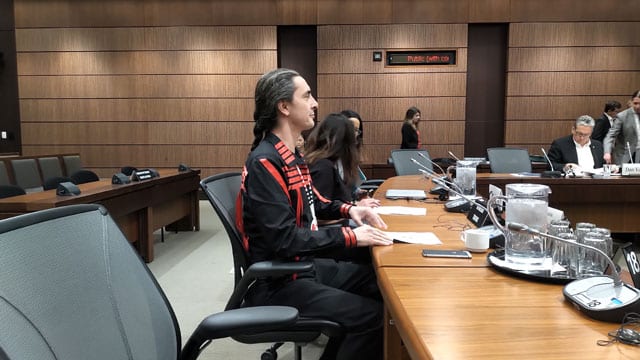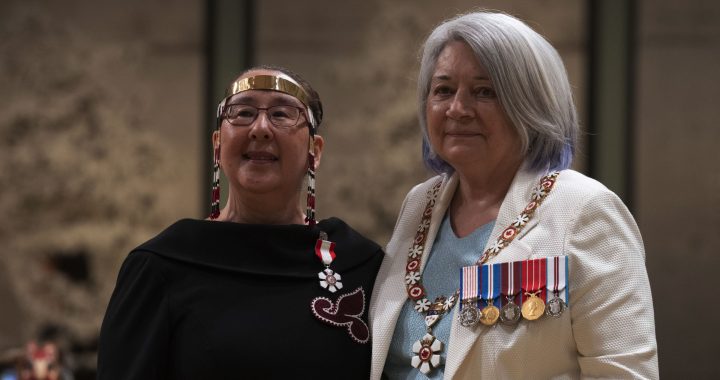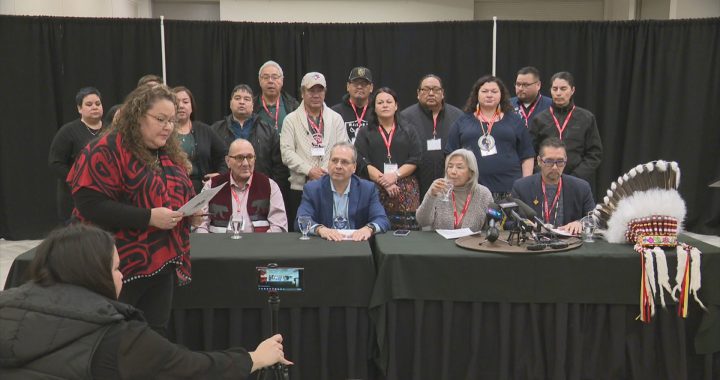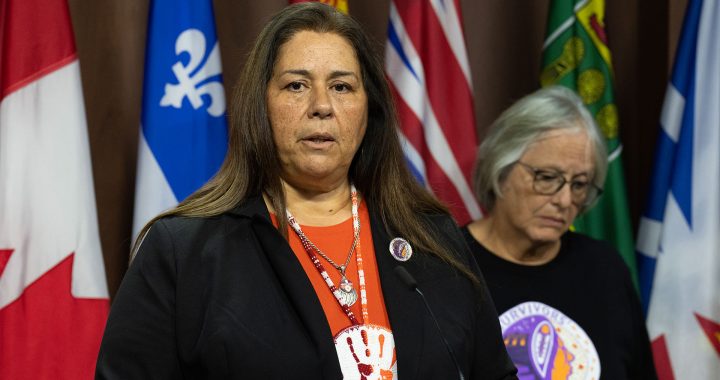
The federal government’s proposed changes to the First Nation, Metis and Inuit child welfare system is one step closer to becoming law.
Bill C-92 passed third reading in the Senate Friday morning and has now been sent to the House of Commons but not without concerns brought up in debate.
The proposed legislation will hand over jurisdiction of children in care to Indigenous people.
It will also recognize Indigenous law as paramount over federal and provincial laws.
But because it was amended by the Senate’s standing committee on Aboriginal Peoples, the House must either accept the amendments or reject them.
If they’re rejected, C-92 will be sent back to the Senate, a week before the House adjourns for the summer.
During this morning’s debate, Manitoba Senators Marilou McPhedran and Mary Jane McCallum brought up the Assembly of Manitoba Chiefs (AMC) concerns with the bill.
Read More:
Indigenous child welfare legislation has promise but needs fixing, say leaders
Manitoba CFS changes ignore First Nations demands for jurisdiction, say chiefs
At a news conference Thursday, AMC Grand Chief Arlen Dumas asked for Manitoba to be exempt from C-92.
“The Assembly of Manitoba Chiefs highlighted that Bill C-92 contains a number of problematic provisions that have the potential to severely impact negatively on First Nations children in Manitoba,” said McPhedran.
She brought up that the AMC is worried its own child welfare proposal, called “Bringing our Children Home Act”, which the federal government and the AMC agreed to through a memorandum of understanding in 2017, will be reversed because of C-92.
(AMC Grand Chief Arlen Dumas at a committee meeting in May asking MPs to kill C-92. Photo: Mark Blackburn/APTN)
Senator Murray Sinclair, who is also from Manitoba, said that Article 3 of the bill says current agreements will not be affected by C-92.
“If there’s a conflict between this bill and any existing agreements regarding child welfare or self-government or anything related to child and family services that is currently in place, then that agreement that’s currently in place prevails over the bill,” said Sinclair.
McPhedran also noted that the bill is pan-Indigenous legislation “and it was not developed in consultation with the First Nations leaders in Manitoba.”
McCallum agreed with McPhedran about the bill being pan-Indigenous and how the province of Manitoba has been reluctant to come to the table to negotiate a transfer of jurisdiction.
“Jurisdiction over child welfare is quite frankly a cash cow for the province,” said McCallum. “At the end of the day it is not in their economic best interest to simply relinquish control of child welfare.”
Saskatchewan Senator Lillian Dyck said First Nations in her province are excited about the bill and are chomping at the bit to use it to opt out of Section 88 of the Indian Act, which gives jurisdiction over child welfare to the provinces.
“And we can’t hold (C-92) up just because of the Manitoba chiefs,” said Dyck.
New Brunswick Senator Sandra Lovelace Nicholas also stated that C-92 was better than the status quo.
“I’m concerned about the children in my provinces,” she said. “And the act to me, I think we should all stick together. Because what happens to the other provinces where the children preside.
“And what happens if this bill does not pass?”












